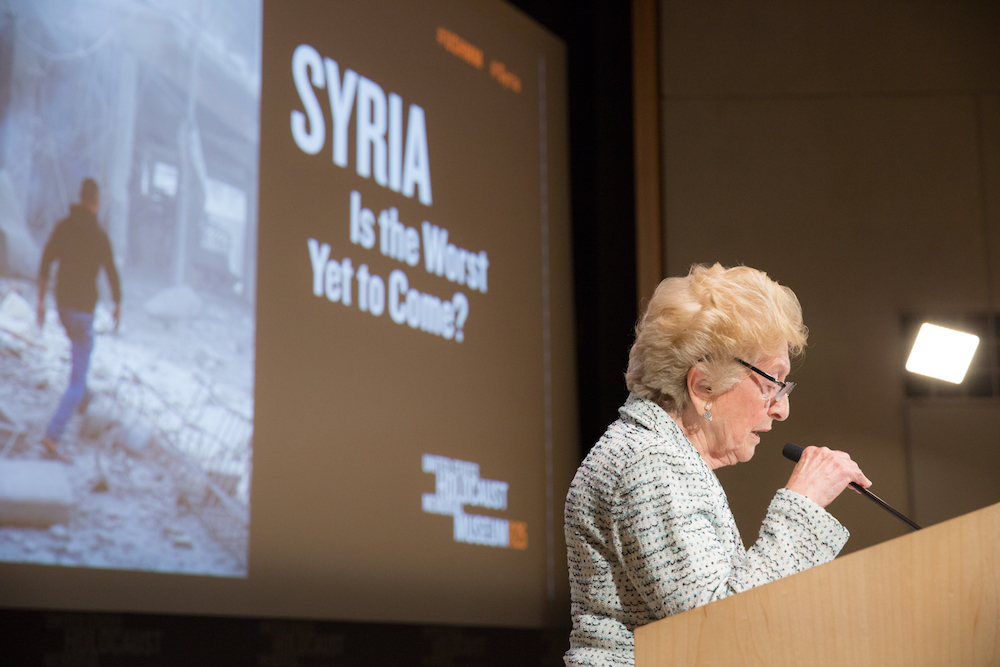March 16, 2018

Remarks delivered by Holocaust survivor and Museum volunteer Irene Weiss at a Museum event marking seven years of deadly conflict in Syria and highlighting the strength and resilience of the Syrian people in the face of these crimes.
March 15, 2018
Thank you for inviting me to speak today.
When I see the photographs of the thousands of Syrian families struggling to survive and desperate to flee from the war, it brings me back to another time, when my family and millions of others were stateless refugees, with nowhere to go.
When I was 13 years old, my family and I were forced out of our home in Hungary, and deported to Auschwitz, where my parents, four of my siblings, and most of my relatives were murdered upon arrival. During my eight months in Auschwitz my 17 year old sister and I were assigned to work and live next to the crematorium. Day and night columns of young mothers with children, and elderly men and women, took their last steps as they passed by our barrack. We watched them enter the gate that led to the gas chamber.
My brain could not absorb what I was seeing. I thought that this place must not be on this earth and that no one knew that it existed. If they knew, surely they would stop it.
Much of the world did know about the persecution of the Jews. World leaders knew about Auschwitz and the other extermination camps. But the killing continued.
It is tragic that over 70 years later, the world is faced with a regime in Syria that commits hideous atrocities against its own citizens. In Syria we see that innocent civilian population is dispensable. Assad sacrifices his population to achieve his war aims.
Recently, I had the opportunity to meet Syrian human rights activist Mansour Omari, whose imprisonment and torture in a Syrian prison is the subject of an exhibit in this museum.
As we walked together through the Syrian exhibit we talked about what had happened to us. His trauma is still very raw. He asked me how is it that I am able to talk about my experiences in Auschwitz and how is it possible to resume normal life.
I told him it took me many years to be able to talk about the evil I experienced. This trauma will stay with me forever. After the war, we had nowhere to go. The survivors wanted to leave Europe and were willing to go to any country that would accept us. My sister and I were very lucky to have been admitted to this wonderful country where we had a chance to live freely and rebuild our lives.
I am proud to be affiliated with this Museum as a survivor volunteer, and to take part in the effort to educate the public about the crimes against the Syrians, and the civilian populations of other countries around the world.
Humanity’s vulnerability to hate and violence demands constant vigilance and a readiness to speak out against those who seek to dehumanize and divide us.
As a survivor, rebuilding faith in people and their institutions takes a long time. But it helps to know that some have learned from the Holocaust, that there are people who believe that race, color, and religion do not set us apart, that we all belong to the human race.
I want to thank General McMaster and all of the speakers for their participation and the audience for their interest in this urgent cause.
View All Blog Posts